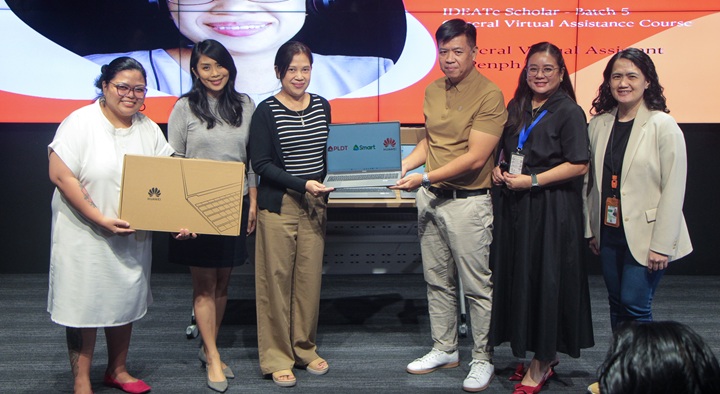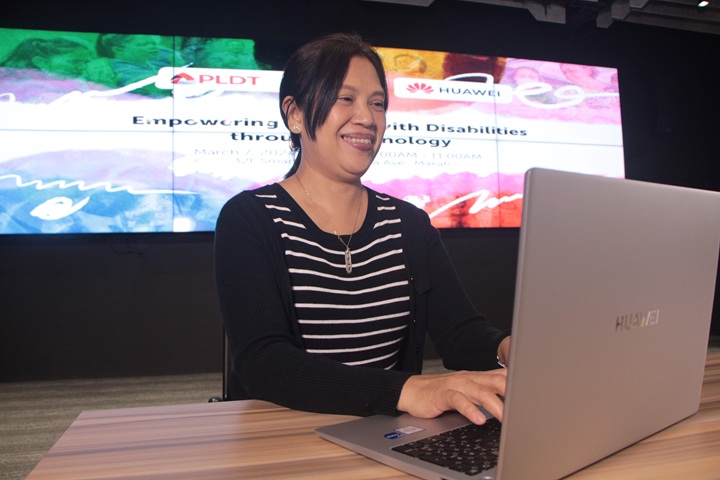
Her family’s well-being was tied to an old laptop. Mayet Mansilunga, a 52-year-old mother of two, works as a virtual assistant. Years ago, she suffered a debilitating knee injury during the pandemic while working at her previous job which forced her to find alternative ways of earning a living.
“My doctor advised against strenuous physical activities, walking long distances, and using the stairs. My physical condition has prevented me from seeking regular jobs that require on-site reporting,” she narrated.
With companies opting for remote work at the height of the global health crisis, Mayet found an opportunity to work at home and help provide for her family.

“I was able to find work at a BPO. It was a huge help for my family because our household income was also affected by the lockdowns,” she recalled.
But when economies slowly opened and businesses ramped up activities post-pandemic, Maricel’s opportunities dwindled, “The company required all employees to report on-site. It would have been difficult for me to commute to work.”
Determined to adapt to the new normal, she prepared for new opportunities by enrolling in free courses being offered by NGOs oriented towards persons with disabilities like Filipina Homebased Moms (FHMoms) and the Adaptive Technology for Rehabilitation, Integration and Empowerment of the Visually Impaired (ATRIEV).
Recognizing the need for more intensive training, she later became a scholar under PLDT and Smart’s IDEATe (Inclusion, Diversity, Equity, and Advocacy through Technology) program, which offers scholarship grants for persons with disabilities in partnership with FHMoms and ATRIEV.
“Women and persons with disabilities are at the heart of our inclusion efforts. IDEATe helps beneficiaries develop skills that will help them find remote tech jobs,” said Stephanie V. Orlino, AVP and Head of Stakeholder Management at PLDT and Smart.
Mayet is one of many IDEATe scholars who completed the Virtual Assistant Course conducted by FHMoms. Her newfound skills helped her secure a more stable role with her client, who made her a full-time employee.
“He saw that I acquired new skills, so he expanded the scope of my duties. He assigned more tasks for me and trusted me with managing his personal appointments as well,” said Mayet.
Recently, Mayet received a brand-new laptop from PLDT and Smart’s long-time partner, Huawei Philippines. This replaced her old unit, which could no longer function without being plugged in to an outlet. The donation is part of the PLDT Group’s celebration of National Women’s Month.
“Now, I can work much better. My old laptop was prone to breaking down. And when it did, I had to rent my neighbor’s unit to finish my tasks,” she said.
The PLDT Group’s initiatives to push for digital inclusion of underserved sectors through the IDEATe program aims to help the country achieve UNSDG 1 on No Poverty, UNSDG 8 on Decent Work and Economic Growth, and UNSDG 10 on Reduced Inequalities by empowering and promoting the social, economic and political inclusion of all, including persons with disabilities.

